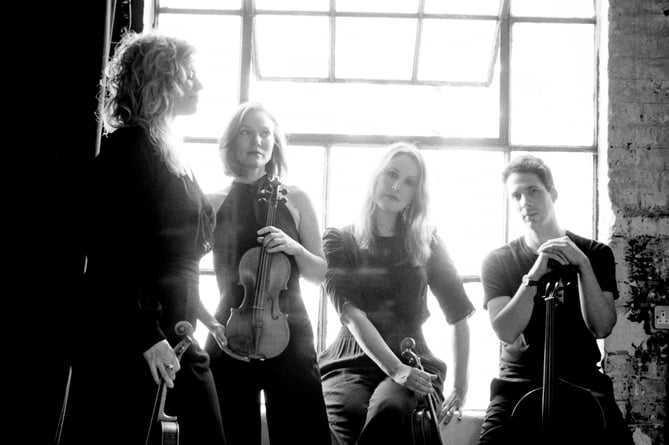WHEN the superb Albion Quartet gave an HHH Concert at St Christopher’s Church in Haslemere, an appreciative audience enjoyed a wonderful evening’s music making.
We dropped into things straight away with Dvořák’s String Quartet No 13. The music is shifting all the time, as the first tune returns in the minor key the serene mood becomes tinged with sadness. Where the slow movement starts with a beautiful elegiac tune in the first violin, the instruments become reconciled to the sense of loss.
The third has a brisk, hopping dance, the skočná, then a more stately theme. The piece ended with an allegro con fuoco – quick and fiery.
The quartet evoke a fabulous range of tone from their fine collection of instruments, which includes a Stradivarius and a Guarnerius. They needed this flexibility for the next piece, Bartók’s Quartet No 3.
The work starts eerily in the first violin and the sense of foreboding builds. The second part incorporates fragments rich with Hungarian folk music. This is music stripped back to the essentials, tiny motifs chase each other, redeveloped again and again.
The players achieved almost every rhythmic effect you could have without a drum kit. Bartok stipulates extreme string techniques – bowing near the bridge, playing with the back of the bow – which they employed to bring a dazzling breadth of colour to this strange mix, counterpoint, fugue and all.
With evident relish, Albion crowned their concert by playing Beethoven’s Quartet No 16 in F Major. This, the last full piece which he was to write, showed a marked shift in ideas.
The first movement is a gentle conversation, the second a dizzy dance. The slow movement is sweet and singing, in Beethoven’s beloved form, a set of variations.
In the score of the Finale, he wrote the enigmatic phrase Must it be, the players seem very sorry for themselves and these three sad notes keep returning, until suddenly comes the jaunty reply It must be and everything cheers up. The finish comes out of the blue with a loud goodbye in the middle of a soft pizzicato coda – the defiant Beethoven ending his life’s work with a laugh.
Martin Robson




